Events
Guests from Punsk (Poland) at the Lithuanian Academy of Sciences
04 09 2024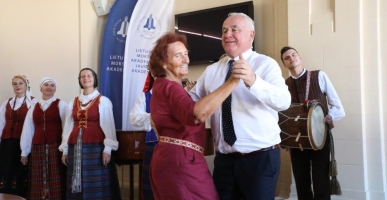
On 3 September 2024, guests from the Lithuanian community in Poland and the Punks gmina (municipality) visited the Lithuanian Academy of Sciences and met the members of the academy’s community. In his address to the audience, Prof. Jūras Banys, the president of the Lithuanian Academy of Sciences, talked about the academicians’ visit to Punsk earlier in the year and hoped that the event would be interesting, enriching, and enjoyable.
Jonas Vaičiulis, the deputy head of the Punsk gmina, opened the event with an overview of the region’s current affairs. He emphasised that the municipality of Punsk acts as an ambassador between Lithuania and Poland as 80% of its residents are Lithuanians. He pointed out that the village that is the focus of ethnicity in the region, is still Lithuanian. He also spoke about the active participation of the inhabitants of Punsk gmina in various cultural groups: each fourth person takes part in cultural activities, dance, or sing in various amateur groups. Contacts with Lithuania are quite intensive, with various delegations visiting regularly. When talking of the preservation of Lithuanian identity, the speaker placed emphasis on education and expressed his satisfaction at the fact that many students were studying in Lithuania. Mr Vaičiulis spoke of the ethnic and patriotic sentiment and the importance of the Catholic faith in bringing the community together.
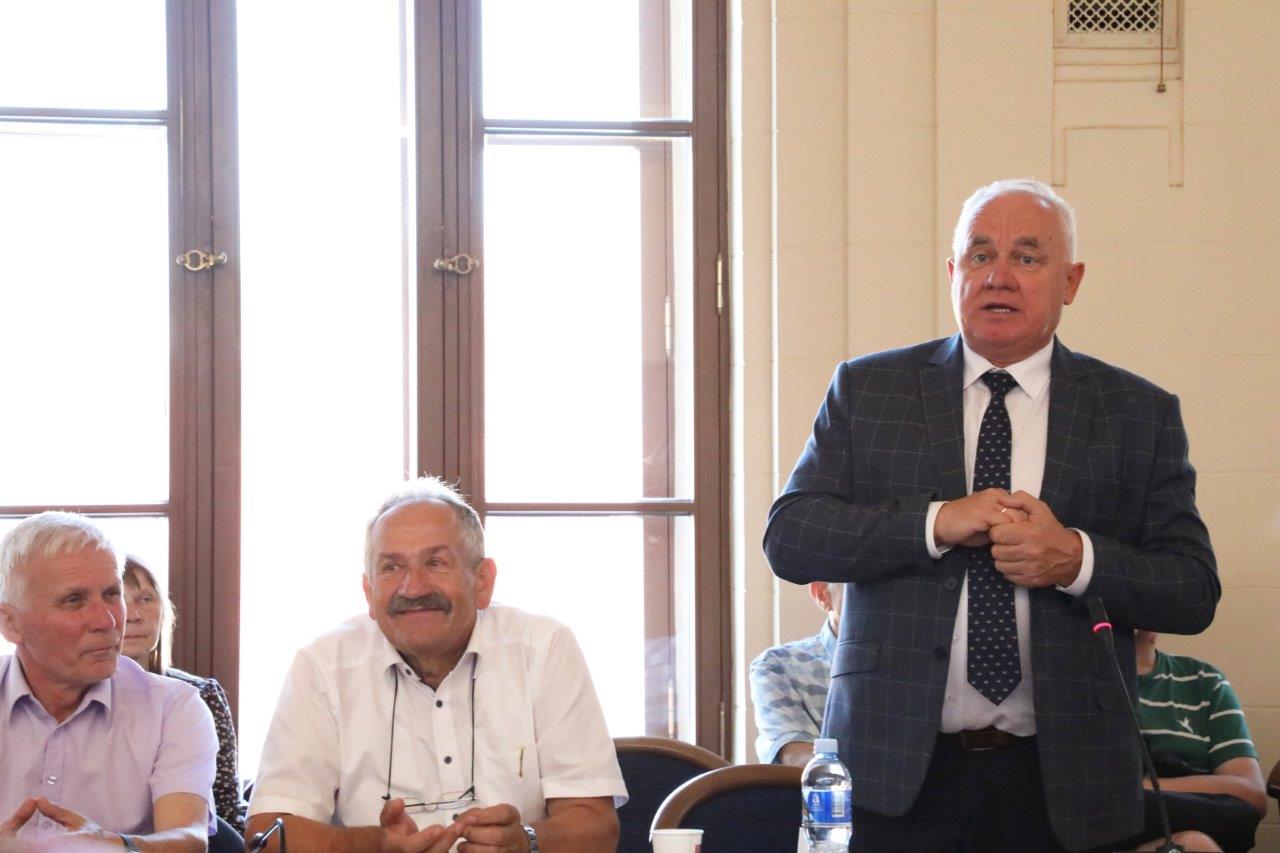
Left to right, Prof. Vidmantas Stanys, the chair of the Division of Agricultural and Forestry Sciences of the Lithuanian Academy of Sciences, Prof. Zenonas Dabkevičius, the vice-president of the Academy, and Jonas Vaičiulis, the deputy head of the Punsk gmina.
Professor Dr Egidijus Aleksandravičius (Vytautas Magnus University, Kaunas) gave the lecture ‘Lithuanians in the Borderlands on Both Sides of the Lithuanian-Polish Border: The Evolution of the Social Profile from 1922 to the Present’. The speaker stated that this was an important topic, although little attention had been paid to it: it was a topic that he found very interesting and intended to write something about it in the future. With his roots in this area, he maintains contacts with its people and observes fundamental social differences. The Lithuanians living in the borderland have changed over the last hundred years. During the First Republic of Lithuania, the social profile of Lithuanians on both sides of the border did not differ much, although Lithuania was even more advanced and provided its farmers with better opportunities than Poland. The life of the Lithuanians on the other side of the border was more stressful.
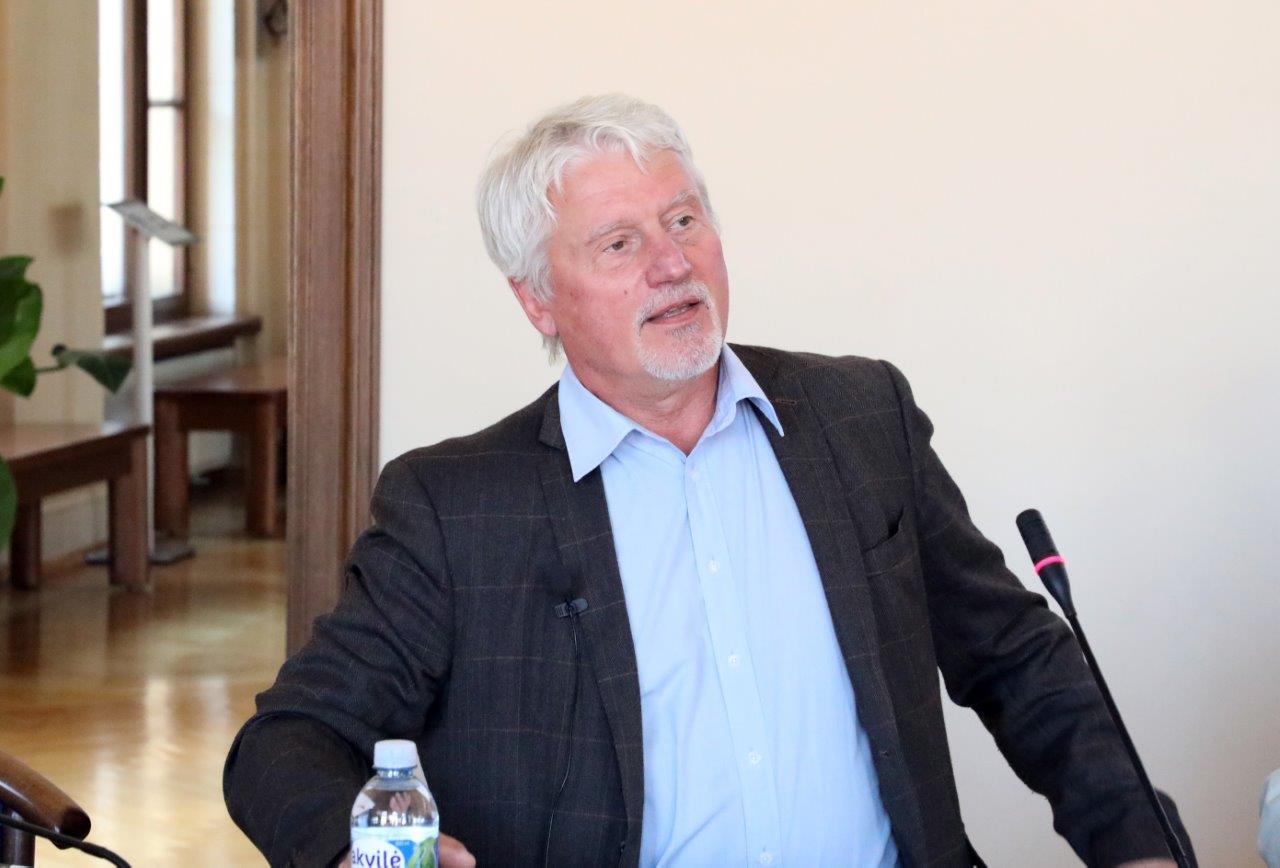
Prof. Egidijus Aleksandravičius, Vytautas Magnus University, Kaunas.
According to Prof. Aleksandravičius, the greatest achievement that we can acknowledge in Poland is the creation of a genuine, three-tier self-government. It is crucial that people know who they are electing. Meanwhile, Lithuania has failed to create a similar system. Equally important is the fact that there has never been such repression of the church and the clergy in Poland as in Lithuania. Thus, the Lithuanians in Poland are self-governing and have not broken the link with the natural community of faith. The professor closed his lecture with the observation that the border remained only in our spirit.
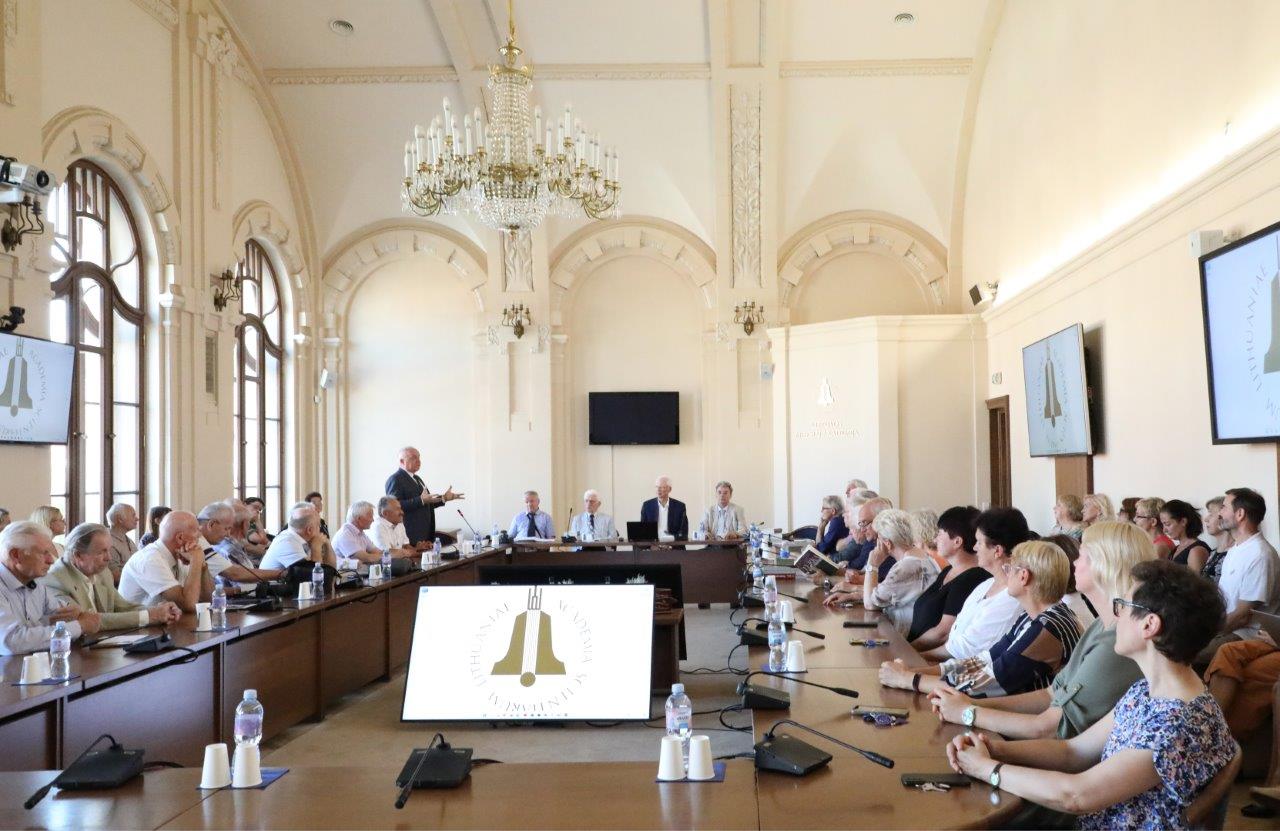
A moment from the event.
Prof. Dr Bronius Makauskas gave a presentation on the path of the Lithuanian language into the public life in Seinai (Sejny) Diocese in the nineteenth and twentieth centuries. He explained that he had still been researching the past because he himself had gone through the process of acculturation, assimilation and Polonisation. He gave some historical examples of acculturation to better explain the differences between the Polish and Lithuanian mentality, in order not to repeat mistakes, or to correct the mistakes made. The professor mentioned that the eighteenth century was the threshold when Lithuanian clergy began to demand service in the church in their native Lithuanian, which was guaranteed by law. Unfortunately, in practice this right did not exist. This led to constant conflicts, including in Seinai (Sejny) Diocese.
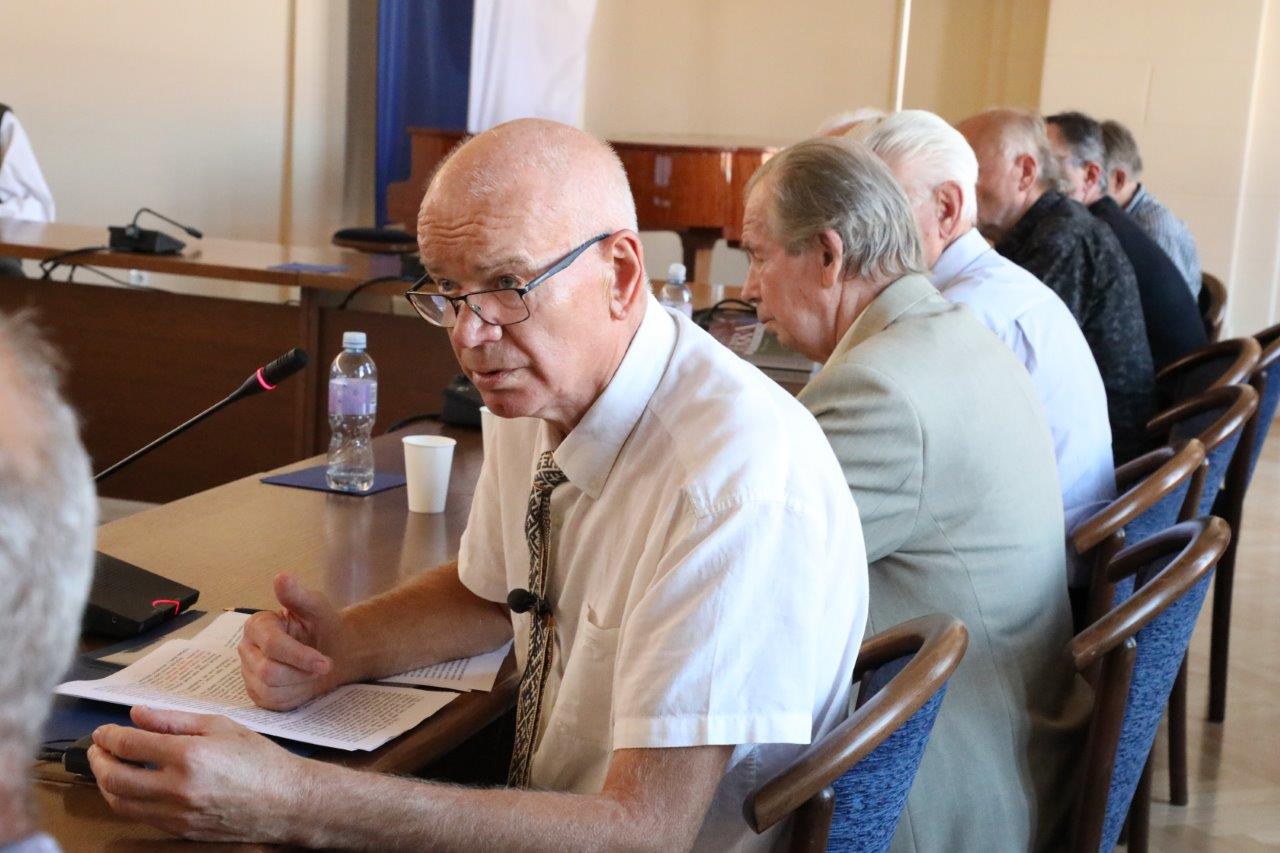
Prof. Dr Bronius Makauskas.
According to Prof. Makauskas, we are not looking for conflicts but we do feel the wrongs, so historical truth must be restored. The Lithuanian clergy has been historically numerous in Seinai (Sejny) Diocese, but in Poland this is still ignored (with reference to the Kresy Museum). The emphasis is only on the penetration of Polish national thought in this region, while the Lithuanian aspects of history are overlooked. Our rich culture, which was suppressed at various times, must be protected in the Polish borderland.
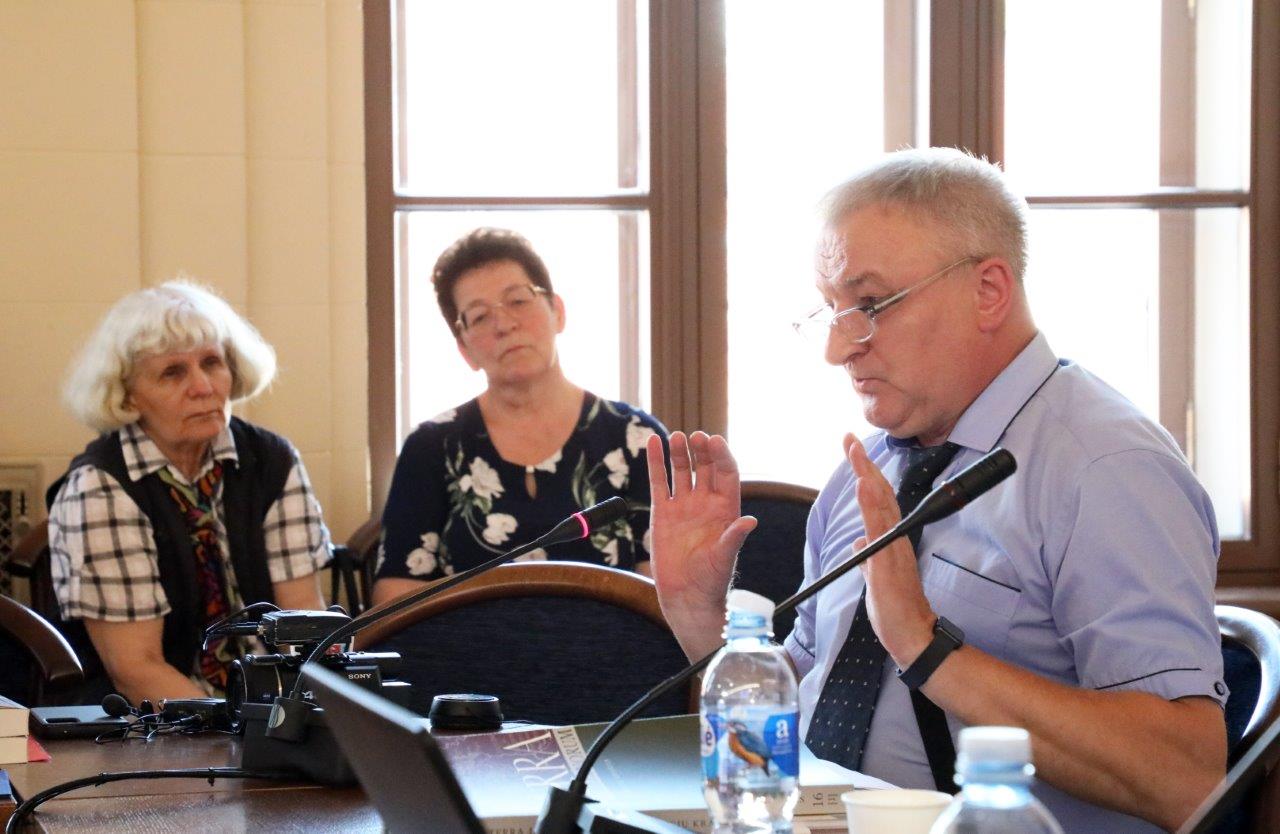
Sigitas Birgelis, the chief editor of the journal Terra Jatwezenorum (The Land of Yotvingians).
Prof. Makauskas’s presentation was followed by that of Sigitas Birgelis, the chief editor of the journal Terra Jatwezenorum (The Land of Yotvingians), a member of the Lithuanian Writers’ Union, and an author of twelve books of poetry. He presented the latest issue of this chronicle of historical heritage (almost 350 pages of text), which features the article ‘Explaining the Origin of Lithuanians with the Help of Genetics’ by Dr Alina Urnikytė and Prof. Vaidutis Kučinskas, who is a member of the Lithuanian Academy of Sciences. It also includes texts on Yotvingian mounds at the village of Šveicarija, the latest research into the Yotvingian hill-fort in Eglinė, and an article by Academician Grasilda Blažienė on the interactive man of East Prussia. Twenty-four volumes of this yearbook have been published in 15 years.
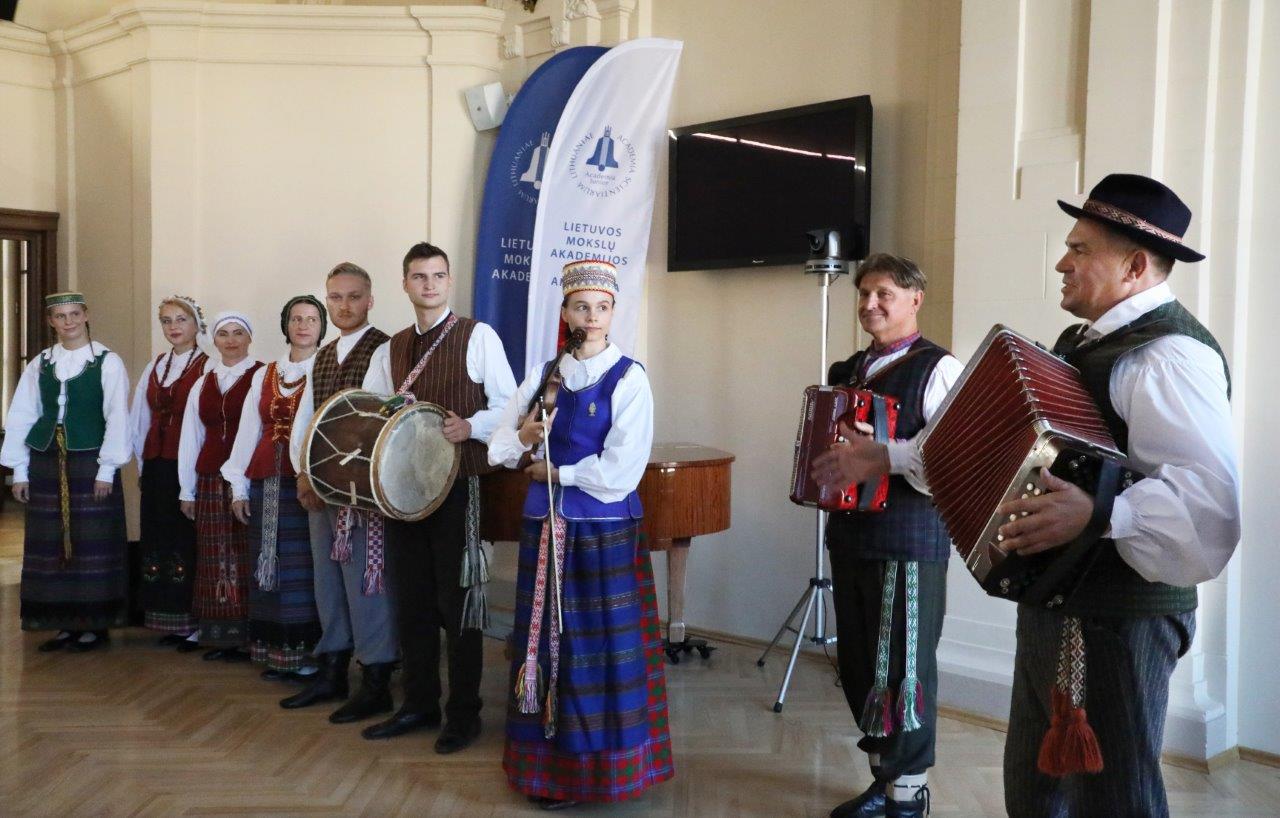
Performance of the ‘Alna’ folklore group from Punsk.
The highlight of the event was the performance of the ‘Alna’ folklore group from Punsk. It has been active for almost three decades and has taken part in four song festivals in Lithuania. The spirited performance of the folklore group ended with a cheerful dance of the guests and the community of the Lithuanian Academy of Sciences. The event left its participants with the hope of further strengthening of the ties between Lithuanians living in the two countries.
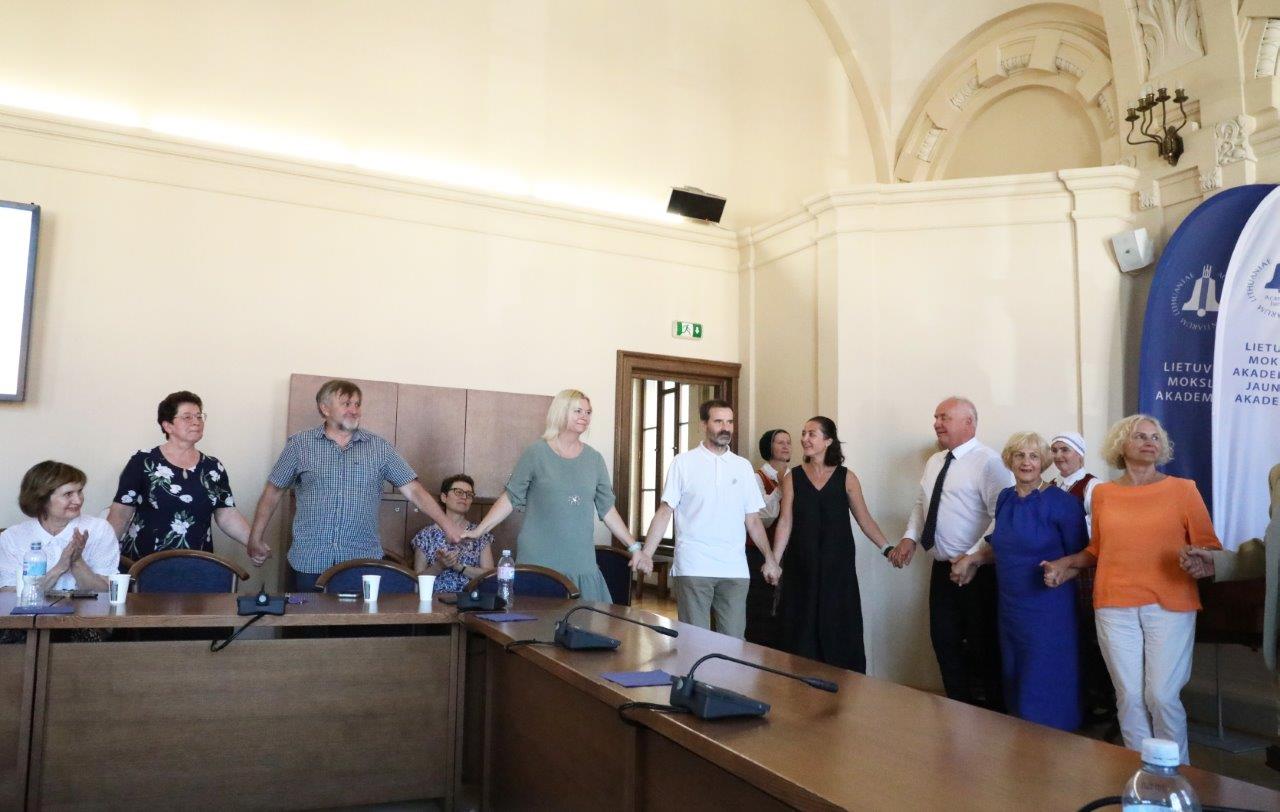
Guests from Punsk and members of the community of the Lithuanian Academy of Sciences join in a merry dance.
Dr Rolandas Maskoliūnas, Chief Specialist for Public Relations
Translated by Diana Barnard
Photography Virginija Valuckienė
